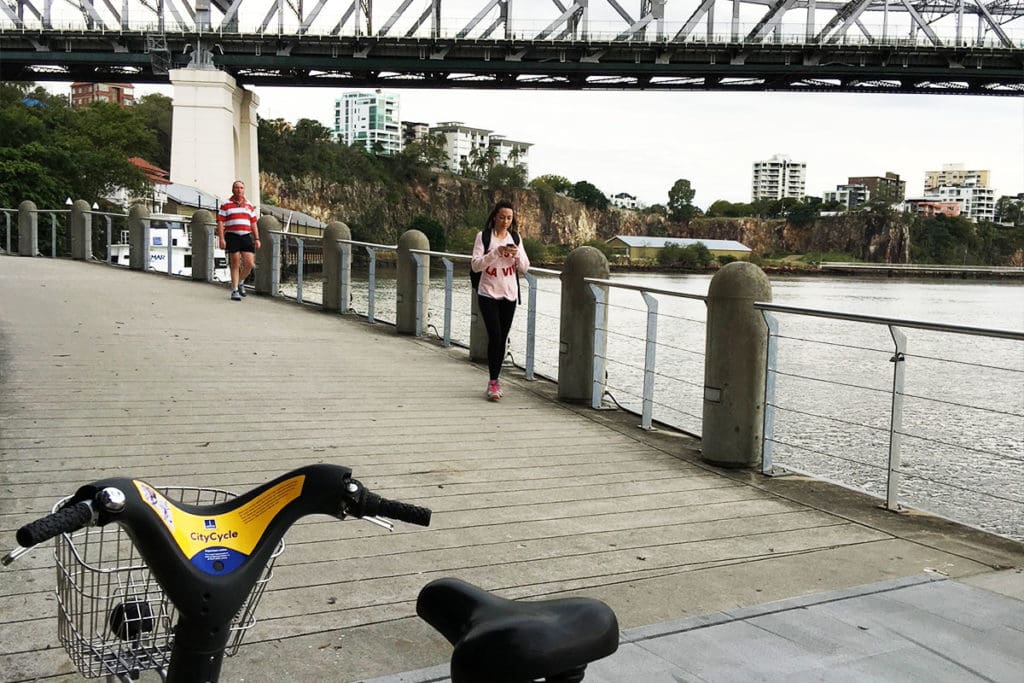Australia’s Oldest Bike Share Scheme to be Axed… Then Upgraded

CityCycle in Brisbane is Australia’s largest and oldest bike share scheme. The scheme was founded 10 years ago when the Campbell Newman lead Brisbane City Council signed a deal with French multinational advertising signage company JCDecaux.
Under the deal, JCDecaux took over the lucrative exclusive rights for advertising signage throughout Brisbane’s street furniture and buses in return for paying for and running a bike share scheme.
The scheme they implemented was the same system using the same bike models that they used in the much larger Paris scheme and in other French cities.
However the CityCycle scheme has struggled to attract world standards of ridership throughout its life. Some of the problems included long-winded ‘user-hostile’ software confronting potential riders looking to hire a bike, restricted operating hours and docking stations spread too far apart.
But possibly the biggest problems have been the combination Brisbane’s quite hilly terrain and long, hot, humid summers. This makes riding a heavy bike a daunting prospect for many.
Brisbane’s lack of separated cycling infrastructure has not helped, although gradually more has been built over the past decade.
On 24th November 2020 it was announced that the CityCycle scheme will be phased out over the next 12 months and replaced e-bikes.
The council will call for tenders for the supply of 2,000 ebikes. This is slightly more than the current number of current CityCycle bikes in operation.
Council public transport chair Ryan Murphy said that the introduction of e-scooters for hire onto Brisbane streets two years ago saw CityCycle use plummet.
“The reality is that CityCycle is not as popular as it used to be, and COVID-19 has seen numbers reduced further. Today there are five trips being taken on an e-scooter for every trip on a CityCycle.
“Residents have voted with their feet and are opting for more modern transport options, like e-scooters and it’s up to Council to continue to innovate to meet the needs of today, not 10 years ago.”
The CityCycle scheme cost about $16.5 million over the past decade but Murphy said the new scheme would cost ratepayers nothing. It will be operated along competitive lines much like the current e-scooter scheme.
The move means French advertising company JCDecaux is set to tighten its grip on ads adorning council buses, bus stops and the like in a deal which would extend the company’s contract with the council until 2031.
